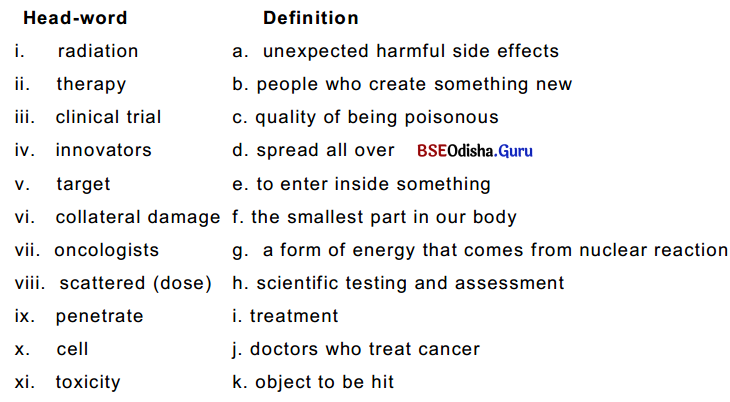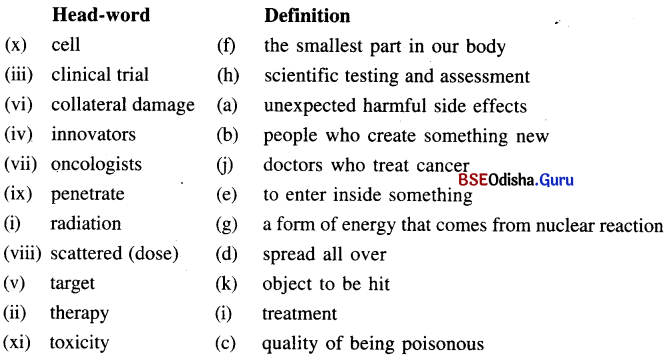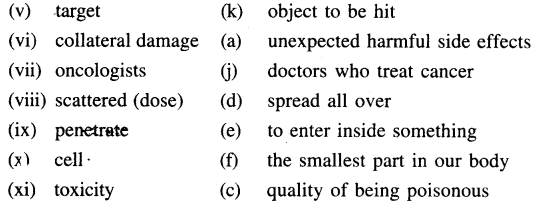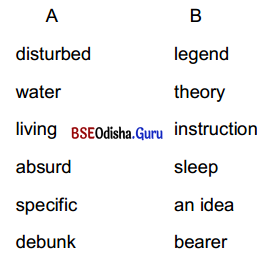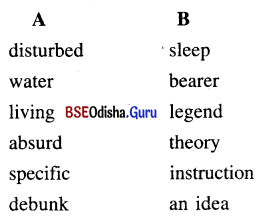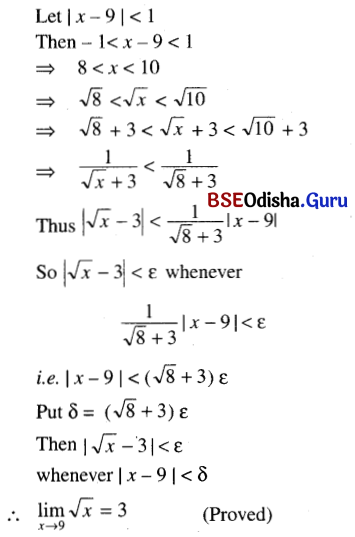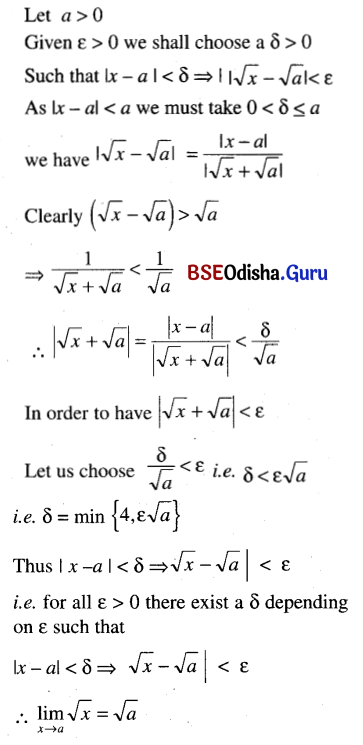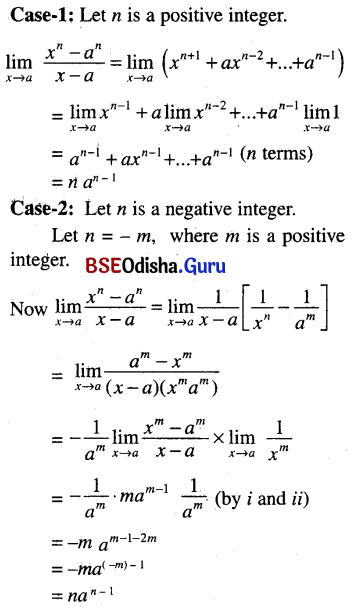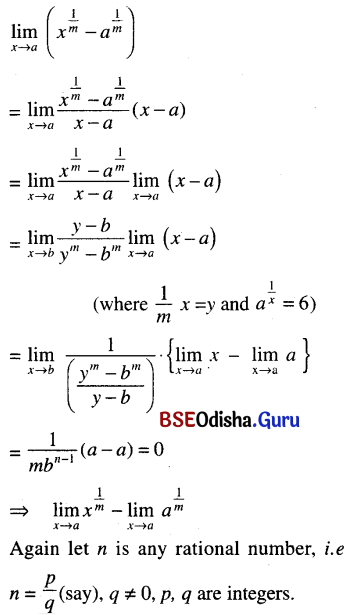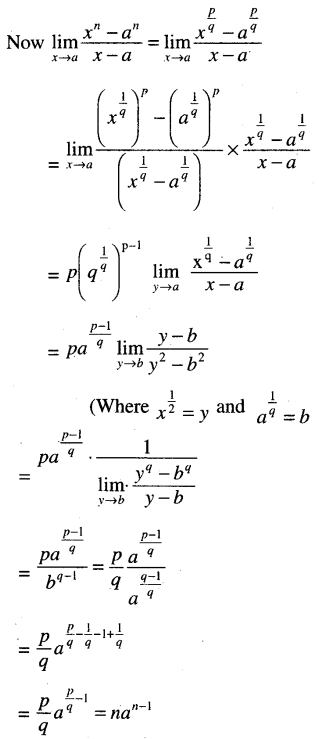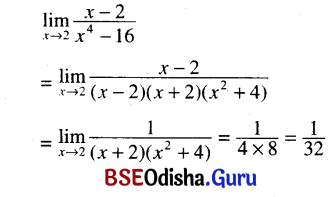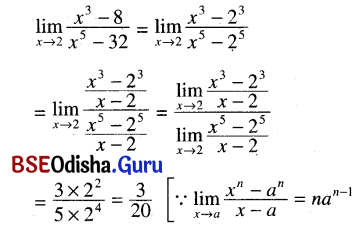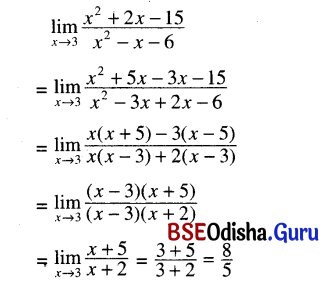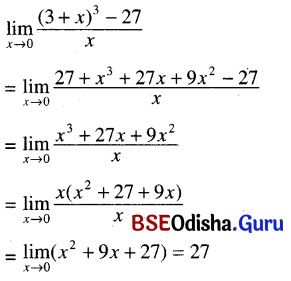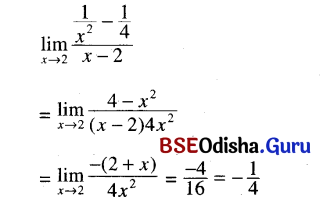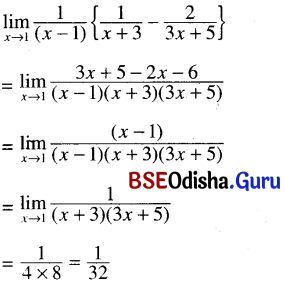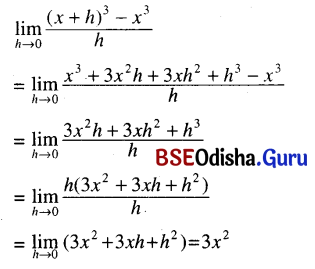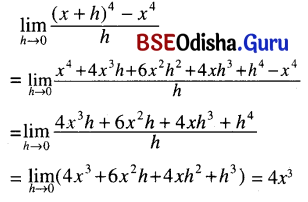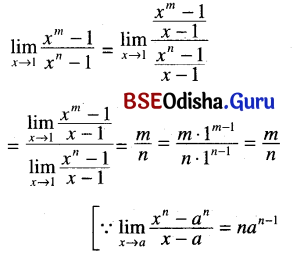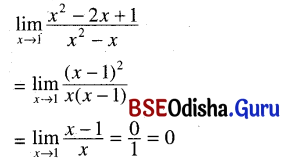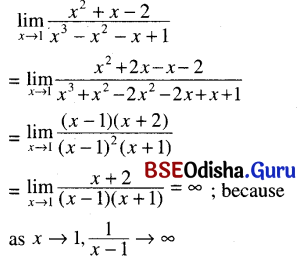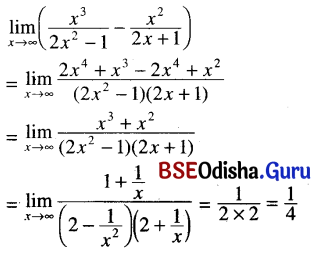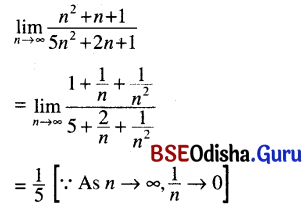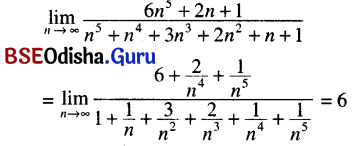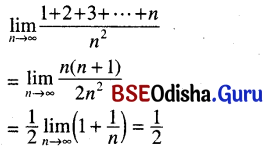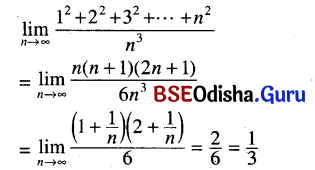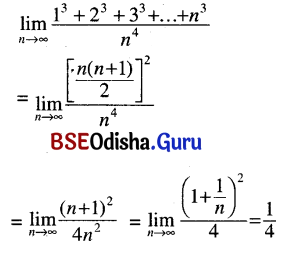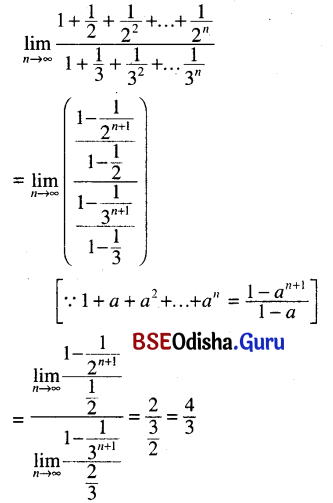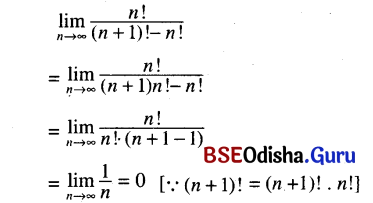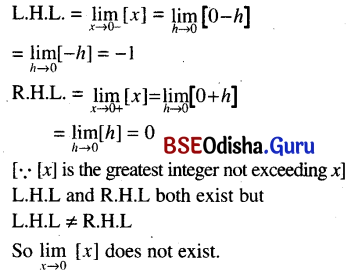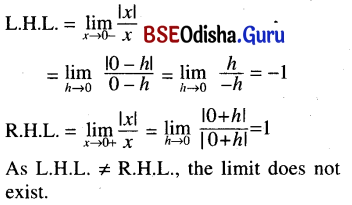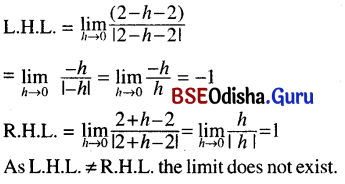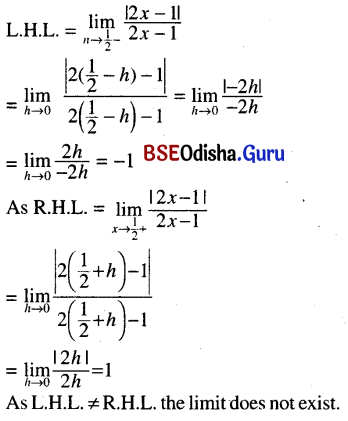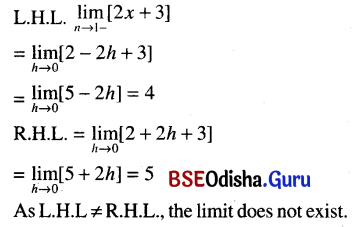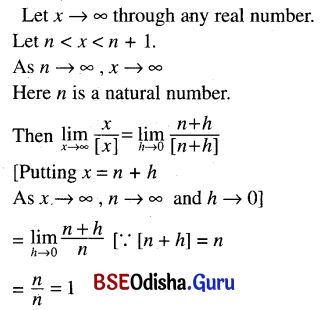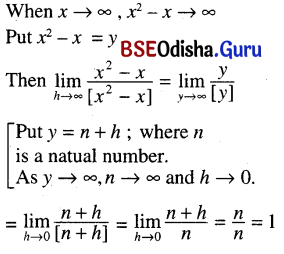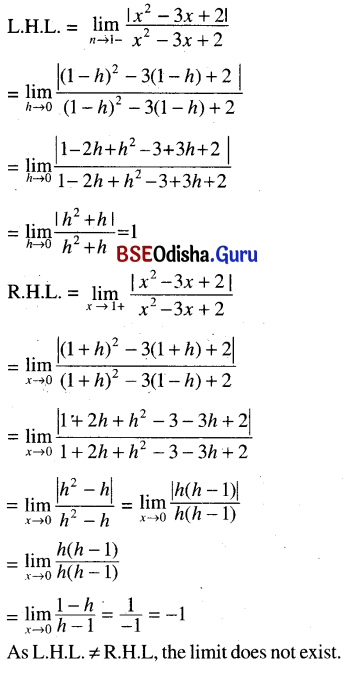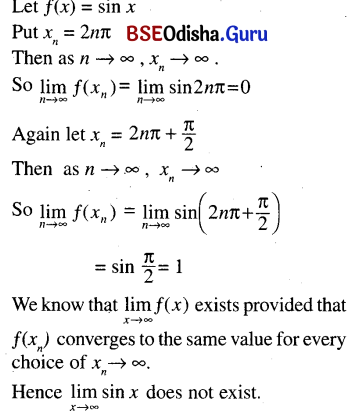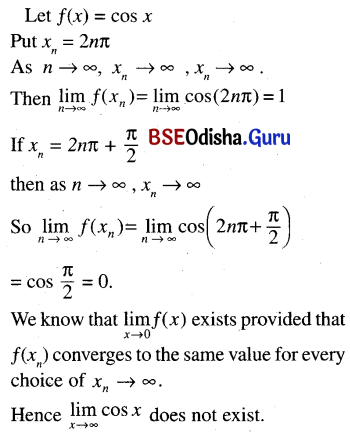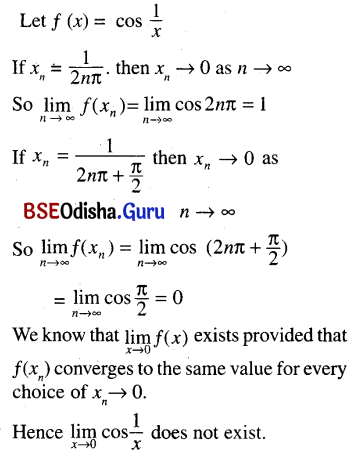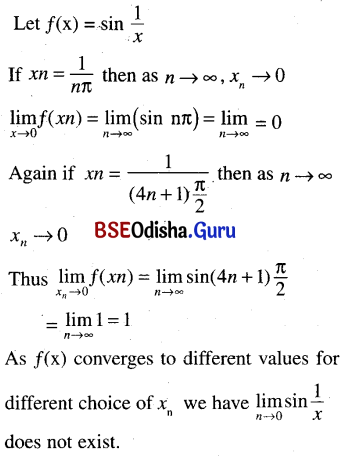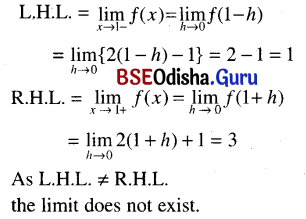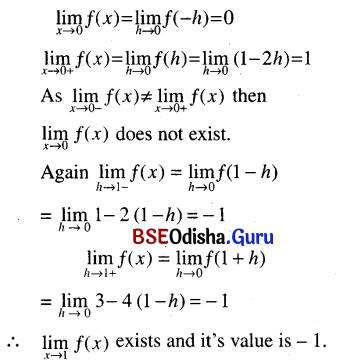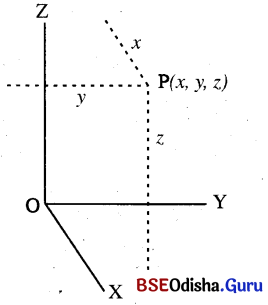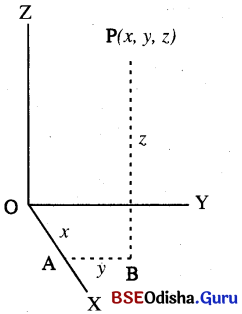Odisha State Board CHSE Odisha Class 11 Invitation to English 1 Solutions Chapter 3 The Golden Touch Textbook Exercise Questions and Answers.
Class 11th Invitation English Chapter 3 The Golden Touch Question Answers CHSE Odisha
The Golden Touch Class 11 Questions and Answers
UNIT – I
Gist with Glossary
Gist:
The legendary king Midas’s madness for gold had no limit. To him, the most precious thing in the world was gold. The love that he had for his little daughter Marygold was no less. It was his earnest wish to see everything such as the golden light of the sun at the evening, a bunch of sweet yellow flowers, and the most beautiful roses in his garden turn into gold. Even the king’s intense love for music in his youth paled into insignificance before the sound of coins, one against another. He always dreamt about gold. He could not resist the temptation of counting his gold pieces.
One morning the sight of an unknown person caught his attention. His astonishment knew no bounds to see him in his treasure room which he himself had locked. He asked Midas, why he was not satisfied, despite being vastly wealthy. He gave vent to his wish that everything he touched would become gold. It would give him supreme happiness. The stranger fulfilled the king’s desire. The following day, at sunrise the latter’s dream came true. He had the Golden Touch at his disposal. Strangely enough, the stranger had vanished.
Glossary:
besides : in addition to (ଏତଦ୍ବ୍ୟତୀତ)
dearly : deeply (ଗଭୀର ଭାବରେ)
precious : valuable (ମୂଲ୍ୟବାନ)
treasure-room : here, the room where king Midas had kept bars of gold (ଗନ୍ତାଘର )
brightened : shone (ଉଜ୍ଜ୍ବଳି ଉଠିଲା)
vividly : clearly (ପ୍ରାଞ୍ଜଳ ଭାବରେ)
![]()
Think it:
Question 1.
What do you learn about King Midas from the first two paragraphs of the story?
Answer:
The first two paragraphs throw light on King Midas’s vast wealth and his obsession with gold.
Question 2.
What did he wish when saw the golden light of the evening sun?
Answer:
When he saw the golden light of the evening sun, he wished it could change everything into genuine gold.
Question 3.
Why didn’t he like the roses in his garden?
Answer:
He didn’t like the rose in his garden, because they were not made of gold.
Question 4.
How did he spend his time in his ‘treasure room’?
Answer:
He spent his time in his treasure room counting his gold pieces. Besides, he held the bars of gold and praised his gold cups and plates.
Question 5.
How did he come across the stranger?
Answer:
He came across the stranger when his treasure room was bathed in bright sunshine; he found the latter in his locked room.
Question 6.
How did King Midas answer the stranger’s question, “What else do you want ?”
Answer:
When the stranger asked him ‘What else do you want ?’, the king expressed his wish that everything he would touch could be changed into gold. Besides, he was sick of collecting his wealth at a very slow rate.
![]()
Question 7.
How did the stranger fulfill his wishes?
Answer:
The stranger fulfilled his ambition by telling him that the following day at sunrise, he would find the Golden Touch at his disposal.
UNIT – II
Gist with Glossary
Gist:
This unit begins with the king’s discovery that his desire for the golden touch had not been fulfilled. His bed had not changed into gold. His sadness did not last long. A sudden sight of the reflection of the golden light of the earliest sunrise on him worked wonders. The sheet on his bed turned into a cloth of gold. The first sunbeam had truly brought the Golden Touch. Driven by excitement, he touched everything – one of the legs of the bed, the curtain at the window, his dress, and spectacles. There was gold everywhere. The loss of spectacles didn’t matter to him much.
The gold was more precious than his pair of spectacles and his daughter Marygold would read to him. The magic touch turned everything into gold, beginning from the brass handle of the door, and the rose trees, the constant source of his pride and joy in the past. At the moment, he went into breakfast that morning, his little beautiful daughter Marygold came in crying bitterly. When he kissed her, she wore a terrible look, with her little face, beautiful hair, and her little body gone. She became a hard golden figure.
Glossary:
turned into gold: transformed into gold (ସୁନା ହୋଇଗଲା)
disappointed : sad (ଦୁଃଖ)
sunbeam : sunlight (ସୂର୍ଯ୍ୟକିରଣ )
put on : wore (ପିନ୍ଧିଲେ)
bitterly: in a painful or unhappy mood (ଦୁଃଖଦ ଅବସ୍ଥାରେ)
scent : fragrance (ସୁଗନ୍ଧ)
comfort : (here) console (ସାନା ଦେବା )
terrible : ferocious (ଭୟଙ୍କର )
Think it out:
Question 1.
When did the king discover that his desire for the golden touch had been fulfilled?
Answer:
The king discovered that his desire for the golden touch had been fulfilled at the sight of his bed sheet transformed into a cloth of gold.
Question 2.
Why was the king not sad when his spectacles turned into gold?
Answer:
The king was not sad when his spectacles turned into gold, because he felt that a pair of spectacles was not as precious as the Golden Touch. Besides, her daughter Marygold could read to him.
Question 3.
What was Marygold’s complaint about the golden rose?
Answer:
Marygold’s complaint about the golden rose was that it had become yellow and hard and lost its fragrance.
![]()
Question 4.
How did the king console his daughter?
Answer:
The king consoled his daughter stating that she should not think of it at all because these rose flowers that had turned into gold were invaluable. He lovingly said to her to sit and take her breakfast.
Question 5.
Why couldn’t the king enjoy his breakfast?
Answer:
The king couldn’t enjoy his breakfast which included eggs, fish, bread, butter, and a spoonful of coffee, because they all became gold.
Question 6.
What happened to Marygold when the king kissed her?
Answer:
When the king kissed her, the king saw before him a terrible figure instead of his little daughter. Her sweet face, her beautiful hair, and her little body had all gone. There stood a statue of solid gold.
UNIT-III
Gist with Glossary
Gist:
King Midas sank into despair at the loss of everything he loved including his dear little daughter Marygold. In the meantime, the stranger reappeared and enquired him about his Golden Touch. He narrated his tale of woe to the former. He now realized the futility of the Golden Touch. He was terribly thirsty and pined for a cup of cold water to taste. The stranger kept on asking him what he preferred – the Golden touch or a piece of bread and gold or his own little daughter. The grief-stricken father wanted his daughter to get back. His repentance made the stranger remark that he was wiser than before. The stranger knew human nature dies hard and the king was no different. Midas had now become a virulent hater of gold.
He trembled in fear at the sight of a fly perching on his nose and at once felt the ground turning into a small piece of gold. In order to get rid of the burden of the golden touch, the stranger advised the king to go to the end of his garden, and wash in the water of the river there. This was not all. He should bring some of the same water and sprinkle it over anything, he wished to change back again. The king rose to the occasion without wasting time. To his utter delight, he got his lost daughter back by sprinkling water on her. Marygold was kept in dark about this painful incident. The king started his life afresh in the midst of his loving daughter and his garden full of fragrant roses.
Glossary:
lingered (here) saw for some time (କିଛି ସମୟ ପାଇଁ ଦେଖୁବା)
despair : misery (ଦୁର୍ଦ୍ଦଶା)
passionately : the state of mind caused by passion (ଆଗ୍ର ହାନ୍ତି ତ ହୋଇ)
scrap: piece (ଖଣ୍ଡ)
weight : (here) the burden of greed for gold
Think it out:
Question 1.
How did the king realize that the golden touch was a useless gift for him?
Answer:
The king realized that the golden touch was a useless gift for him because it deprived him of everything that he loved, especially his sweet little daughter Marygold. The king had become a grief-stricken person.
Question 2.
‘You are wiser than you were’ – why did the stranger say so?
Answer:
The stranger said so because he marked that the king was seething with repentance for his obsession with gold. The king wished he had not given one hair of his daughter’s head in exchange for the power to transform the entire earth into gold.
![]()
Question 3.
What did the stranger advise the king to do to get rid of his golden touch?
Answer:
In order to get rid of his golden touch, the stranger advised the king to go to the end of his garden, and wash in the water of the river there. This was not all. He should bring some of the same water and sprinkle it over anything he wished to change back again.
Question 4.
How did the king get back his daughter?
Answer:
The king got his daughter back by going straight to the golden figure of his daughter and then sprinkling some water brought from the river on her.
Question 5.
Is the story a tragic or comic one? Give your reasons.
Answer:
The story, The Golden Touch is not a tragic one, because though the grief-stricken king could not look at Marygold, there is no death inevitable. Instead, the story is a comic one. King Midas, the protagonist of the story, in spite of his sadness, makes us laugh at his blind love of gold. How can a father make his loving little daughter a victim of his boundless greed? His reaction at the loss of everything he loved and his belated realization of his mistakes and above all, the stranger’s words contribute to the comic aspect of the story, although there are patches of pathos.
Post-Reading Activities:
A. Arrange the following sentences according to their logical order.
(a) Midas said, ‘I wish everything I touch could be turned into gold’.
(b) ‘The Golden Touch !’ exclaimed the stranger.
(c) Midas said, ‘It would give me perfect happiness’.
(d) The stranger said, ‘Tomorrow at sunrise you will find that you have the Golden Touch’.
(e) King Midas came across a stranger smiling at him.
(f) The stranger asked, ‘What do you want ?’
(g) He guessed that the stranger was no ordinary person.
Answer:
(e) King Midas came across a stranger smiling at him.
(g) He guessed that the stranger was no ordinary person.
(f) The stranger asked, ‘What do you want ?’
(a) Midas said, ‘I wish everything I touch could be turned into gold’.
(b) ‘The Golden Touch !’ exclaimed the stranger.
(c) Midas said, ‘It would give me perfect happiness’.
(d) The stranger said, ‘Tomorrow at sunrise you will find that you have the Golden Touch’.
B. Doing with words.
1. Write the antonyms of the following words :
love —
bright —
perfect —
wise —
please —
usual —
happiness —
common —
beautiful —
careful —
proud —
sincere —
Answer:
love — hate
bright —dull
perfect — imperfect
wise — fool
please — displease
usual — unusual
happiness — sadness
common — uncommon
beautiful — ugly
careful — careless
proud — humble
sincere — insincere
![]()
B. Match the expressions in column A with their one-word substitution in column B.
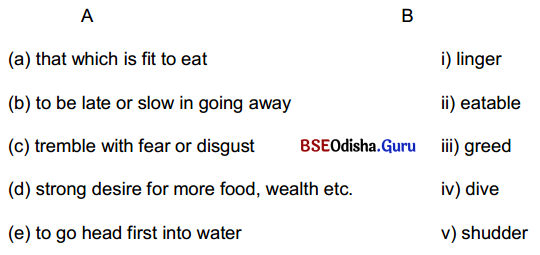
Answer:

3. Write the nouns derived from the following verbs :
collect ______________
satisfy ______________
exclaim ______________
disappoint ______________
reflect ______________
astonish ______________
expect ______________
Answer:
collect — collection
satisfy — satisfaction
exclaim — exclamation
disappoint — disappointment
reflect — reflection
astonish — astonishment
expect — expectation
![]()
4. Fill in the blanks with the adjectival forms of the following nouns:
gold _____________
beauty _____________
palace _____________
magic _____________
spectacle _____________
comfort _____________
sorrow _____________
passion _____________
Answer:
gold — golden
beauty — beautiful
palace — palatial
magic — magical
spectacle — spectacular
comfort — comfortable
Sorrow — sorrowful
passion — passionate
5. Fill in the blanks with the verbs from which the following nouns have been
speech _______________
thought _______________
excitement _______________
collection ________________
service _______________
Answer:
speech — speak
thought — think
excitement — excite
collection — collect
service — serve
![]()
CHSE Odisha Class 11 English The Golden Touch Fours Important Questions and Answers
I. Short Answer Type Questions with Answers
1. Read through the extract and answer the questions that follow.
Long ago, there lived a very rich man called Midas. Besides being rich, he was a king, and he had a little daughter called Marygold. King Midas loved gold more than anything else in the world. He liked being a king, chiefly because he loved his golden crown. He loved his daughter dearly too, and the more he loved her, the more gold he wanted for her sake. When King Midas saw the golden light of the sun in the evening, he wished it could turn everything into real gold. When Marygold came to him with a bunch of sweet yellow flowers, he would say, ‘If they were as golden as they look, they would be worth picking !’.
Even the roses in his garden did not please him anymore – the largest and sweetest and most beautiful roses ever seen – because they were not made of gold. And although the king was very fond of music in his youth, the only music he loved now was the sound of gold coins, one against another. At last, King Midas could not bear to touch anything that was not gold. He used to go down to a secret room under his palace where he kept his precious store. He would let himself in and count his gold pieces. He would hold the bars of gold and admire his gold cups and plates until he could hardly bear to leave them.
Now in those days, a great many wonderful things used to happen just as they do today. One morning King Midas was in his treasure room when he noticed that the sun was shining into the room more brightly than usual. Not only that, but a stranger stood there, smiling at him in the light of the sunbeam. King Midas knew that he had locked himself in as usual, and so he guessed that his visitor was no ordinary person. The stranger looked at the gold pieces that the king was counting. ‘You seem to be a very rich man’ he said. ‘But it has taken me a long time to collect this gold’, said King Midas. ‘If I could live a thousand years, I might have time to get richer.
Questions :
(i) Why did King Midas like being a king?
(ii) How did he respond, when his daughter came to him with a bunch of beautiful yellow flowers?
(iii) What did the king love deeply in his youth?
(iv) Why did he not want to touch anything at last?
(v) What led the king to guess that the stranger was not an ordinary person?
Answers :
(i) King Midas liked being a king, mainly because he was fond of his golden crown.
(ii) When his daughter came to him with a bunch of beautiful yellow flowers, he would pick them, if they were as golden as they looked.
(iii) The king loved music deeply in his youth.
(iv) His frenzied desire for gold refrained him from touching anything at last. In other words, he was not interested to touch anything that was not gold.
(v) In spite of his treasure room being locked by himself, to his astonishment the king found the stranger inside it. This led the king to guess that the stranger was not an ordinary person.
![]()
2. Read through the extract and answer the questions that follow.
The next morning, King Midas awoke before dawn. He looked eagerly to see if his bed had been turned into gold. But no; it was exactly as it had been before. He lay, very disappointed, looking around his room. Suddenly, the earliest sunbeam of the rising sun shone through the window and up to the ceiling above. It seemed to reflect its golden light toward him. Looking at the sheet on his bed, Midas was astonished to find that it had become cloth of gold. The Golden Touch had truly come to him, with the first sunbeam. King Midas got out of bed in excitement. He touched one of the legs of the bed as he did so – and it immediately became a golden pillar.
He pulled the curtain at the window, and at once it became golden, too. He put on his clothes and found himself dressed in golden cloth. He took up his spectacles and put them on – and he found he could see nothing at all. The glasses had turned into gold and he could not see through them. He took them off again. ‘Never mind’, he thought to himself. ‘The Golden Touch is worth more than a pair of spectacles, and Marygold will be able to read to me.’ King Midas went downstairs and into the garden. He noticed that even the brass handle of the door became gold as soon as he turned it. Then he went among the rose trees that had always been his pride and joy in the past.
When he went to breakfast that morning, he felt more hungry than usual. While he was waiting for his eggs to be ready, little Marygold came in crying bitterly. ‘Look, father !’ she cried, holding out a golden rose. ‘I went to pick you some roses and they are yellow and hard, and their sweet scent is gone.’ ‘Never mind, my dear’, said her father. ‘They are worth much more like that. Sit down and eat your breakfast.’ He poured himself a cup of coffee as he spoke. The coffee pot was a golden one when he put it back on the table. Then he tried a spoonful of coffee, to see if it was sweet enough. But it had become liquid gold.
Questions :
(i) When did King Midas get up the following morning?
(ii) How did he first make use of the Golden touch and what was the result?
(iii) What had always been his object of pride and happiness in the past?
(iv) ‘But it had become liquid gold.’ What does ‘it’ refer to?
(v) Suggest a suitable title for the extract.
Answers :
(i) The following morning, King Midas got up before the crack of dawn.
(ii) He made use of the Golden touch for the first time by touching one of the legs of the bed and at once it turned into a golden pillar.
(iii) The rose trees in his garden had always been the object of his pride and happiness in the past.
(iv) ‘It’ refers to a spoonful of coffee.
(v) King Midas and his irresistible temptation for gold.
![]()
3. Read through the extract and answer the questions that follow.
In despair, Midas looked about him. Suddenly he saw the stranger that had visited him the day before. ‘Well Midas’, said the stranger. ‘How do you like having the Golden touch ?’ ‘I have lost everything I really loved’, said King Midas. ‘I am full of sorrow and regret. Gold is of no use to me now.’ ‘So you have learnt something since yesterday ?’ asked the stranger. ‘Now which is worth more – the Golden Touch or a cup of cold water ?’ ‘Oh, blessed water !’ exclaimed Midas. ‘Will I ever taste it again?’ ‘The Golden Touch – or a piece of bread ?’ the stranger said. ‘A piece of bread’, answered Midas, ‘is worth all the gold on earth !’
‘Gold – or your own little daughter ?’ asked the stranger. ‘Oh – my child, my child !’ cried poor Midas. ‘I would not have given one hair of her head for the power to change the whole earth into gold !’ The stranger looked seriously at King Midas. ‘You are wiser than you were’, he said. ‘Your heart is still flesh and blood. You know truly that the common things of life, which are within everyone’s reach, are more valuable than riches. Tell me, do you want to keep the Golden Touch ?’ ‘No, it is hateful to me now’, said Midas, passionately. A fly settled on the king’s nose and immediately fell to the floor, a small scrap of gold.
Midas shuddered. ‘Then go down to the end of your garden’, said the stranger, ‘and wash in the water of the river there. Then bring some of the same water and sprinkle it over anything that you wish to change back again. If you do this, truly and sincerely, you can set right again the results of your greed of gold.’ King Midas bowed his head. When he looked up again, the stranger had vanished. The king ran at once to the river. Without waiting to take off his clothes, he dived in. In the coolness of the water, he felt at once that a weight had been lifted from his heart and body.
Questions :
(i) What was the king’s response to the stranger’s question concerning the possession of the Golden Touch?
(ii) “Well I ever taste it again ?” What does ‘it’ refer to?
(iii) Why did Midas tremble in fear?
(iv) What were the results of the king’s greed of gold?
(v) ‘The felt at once that a weight had been lifted from his heart and body.’ What does the ‘weight’ refer to?
Answers :
(i) The king’s response to the stranger’s question concerning the possession of the Golden Touch was only deep sorrow and regret. He was sad at the loss of everything he loved.
(ii) ‘It’ refers to a cup of cold water the king yearned for.
(iii) Midas trembled in fear at the sight of a fly that perched on his nose and at once fell to the floor, eventually turning into a small scrap of gold.
(iv) As a result, of his greed for gold, the king lost everything including precious water and his beloved little daughter Marygold.
(v) The ‘weight’ refers to Midas’s boundless greed for gold.
![]()
II. Multiple Choice Questions (MCQs) with Answers
Choose the correct option.
Unit – I
The text
Long ago ……… stranger had go.
Question 1.
Long long ago there lived a very rich man called :
(a) Midas
(b) Devdas
(c) Raidas
(d) Bidas
Answer:
(a) Midas
Question 2.
Besides being rich, Midas was a :
(a) merchant
(b) Minister
(c) Chief
(d) king
Answer:
(d) king
Question 3.
Midas had a little daughter called :
(a) Marygold
(b) Rose
(c) Sunshine
(d) Nainegold
Answer:
(a) Marygold
Question 4.
King Midas liked being a king, chiefly because he loved his :
(a) golden chair
(b) golden crown
(c) people
(d) name and fame
Answer:
(b) golden crown
Question 5.
King Midas was a lover of more than anything else in the world.
(a) Silver
(b) platinum
(c) gold
(d) Diamond
Answer:
(c) gold
Question 6.
King Midas wished everything to turn into :
(a) real platinum
(b) real diamond
(c) real silver
(d) real gold
Answer:
(d) real gold
![]()
Question 7.
The king was very fond of music in his youth, the only music he loved now was :
(a) the sound of birds
(b) the sound of gold coins
(c) the roar of wild animals
(d) the sound of drums
Answer:
(b) the sound of gold coins
Question 8.
King Midas could not bear to touch anything that was not:
(a) plastic
(b) Silver
(c) gold
(d) Diamond
Answer:
(c) gold
Question 9.
King used to go down to a secret room under his palace where he kept his :
(a) precious gold
(b) coal
(c) precious metals
(d) valuable books and maps
Answer:
(a) precious gold
Question 10.
One morning King Midas was in his treasure room and he noticed that:
(a) the sun was shining into the room more brightly than usual
(b) birds were singing a song beautifully
(c) the golds were being doubled magically
(d) the sun had not risen yet
Answer:
(a) the sun was shining into the room more brightly than usual
Question 11.
Who do you think, standing in front and smiling at the king in the light of a sunbeam
(a) king’s daughter Marygold
(b) the queen
(c) a stranger
(d) the minister
Answer:
(c) a stranger
Question 12.
King Midas knew that he had locked himself in as usual and so he guessed that his visitor was :
(a) no special person
(b) no ordinary person
(c) no poor person
(d) no rich person
Answer:
(b) no ordinary person
Question 13.
Midas thought carefully. This was a wonderful chance, and he felt that the stranger had :
(a) spiritual powers
(b) magical powers
(c) no power
(d) physical powers
Answer:
(b) magical powers
![]()
Question 14.
“I am tired of collecting my riches so slowly. I wish everything I touch could be turned into gold.” Who said this?
(a) daughter Marygold
(b) the minister
(c) the stranger
(d) the king
Answer:
(d) the king
Question 15.
The stranger granted his wish to be fulfilled, i.e.
(a) wish to have a son
(b) the Golden Touch
(c) three wishes
(d) none of the above
Answer:
(b) the Golden Touch
Unit – II
The text
The next morning ……..what had be done?
Question 16.
The next morning, King Midas awoke before dawn and looked eagerly to see :
(a) if his bed had been turned into gold
(b) if his bed had been turned into a bed of roses
(c) if his bed had been turned into a hanging swing
(d) none of these
Answer:
(a) if his bed had been turned into gold
Question 17.
The Golden Touch had truly come to the king :
(a) with his first touch
(b) with the first sunbeam
(c) with his first sight
(d) all of the above
Answer:
(b) with the first sunbeam
Question 18.
After a touch, the things turn into gold. And with this he found himself in :
(a) a sad mood
(b) an angry mood
(c) excitement
(d) a worrying situation
Answer:
(c) excitement
Question 19.
Marygold was holding out a golden rose.
(a) happy
(b) angry
(c) sad
(d) crying bitterly
Answer:
(d) crying bitterly
Question 20.
King Midas tried a spoonful of coffee, to see if it was sweet enough. But it had become :
(a) poison
(b) sour
(c) liquid gold
(d) bitter
Answer:
(c) liquid gold
Question 21.
But the eggs, the fish, the bread, the butter, and all the food was uneatable for the
(a) daughter Marygold
(b) king
(c) stranger
(d) Queen
Answer:
(b) king
![]()
Question 22.
King Midas turned annoyed, sad, and worried because :
(a) he was unable to eat anything because of his Golden Touch
(b) he was unable to rule over his state
(c) he was unable to see anything
(d) none of the above
Answer:
(a) he was unable to eat anything because of his Golden Touch
Question 23.
Midas bent down and kissed his :
(a) gold coins
(b) little daughter
(c) cups and plates
(d) all of the above
Answer:
(b) little daughter
Question 24.
What do you think, that might happen to Marygold after getting a kiss from his father?
(a) she became more affectionate toward her father
(b) she became happy
(c) she turns into an ugly girl
(d) she became a statue of gold
Answer:
(d) she became a statue of gold
Question 25.
What terrible change came over Marygold? Her sweet little face, lovely hair, and little body turned into.
(a) yellow gold, golden metal, and a figure of soid gold
(b) white diamond, shinning metal, and a hard substance
(c) shining platinum and precious metal
(d) none of the above
Answer:
(a) yellow gold, golden metal, and a figure of sold gold
Unit – III
The text
This story ………..roses.
Question 26.
King Midas felt so sad and sorrowful that he wished, he was the in all the world, if only his beloved daughter could be herself again.
(a) richest man
(b) happiest man
(c) poorest man
(d) honest man
Answer:
(c) poorest man
Question 27.
In despair, Midas looked about him and suddenly he saw that had visited him the day before.
(a) stranger
(b) Marygold
(c) known person
(d) none of the above
Answer:
(a) stranger
Question 28.
“I have lost everything I really loved; I am full of sorrow and regret. Gold is of no use to me now.” What does the expression show?
(a) the king is in excitement
(b) the king is sad
(c) the king is repenting for his deed
(d) the king is happy, what happened
Answer:
(c) the king is repenting for his deed
![]()
Question 29.
After having the joy of ‘the Golden Touch’, the king’s view changed :
(a) the Golden Touch is worthful than anything
(b) the Golden Touch is of no use if man’s need is not satisfied
(c) both (a) and (b)
(d) none of the above
Answer:
(b) the Golden Touch is of no use if man’s need is not satisfied
Question 30.
Midas wanted everything back to normal because :
(a) those were worthful
(b) those were his wants
(c) those were useless
(d) those were his needs
Answer:
(d) those were his needs
Question 31.
“I wouldn’t have given one hair of her head for the power to change the whole earth into gold!” This expression said by the king shows :
(a) his hate for his daughter
(b) duty towards his daughter
(c) love for his daughter
(d) all of the above
Answer:
(c) love for his daughter
Question 32.
“You are wiser than you were,” he said. “Your heart is still flesh and blood.” Here ‘you’ and ‘he’ stands for
(a) king and daughter
(b) king and stranger
(c) stranger and king
(d) daughter and stranger
Answer:
(b) king and stranger
Question 33.
Word ‘shuddered’ means
(a) tremble or shake violently
(b) rearrange
(c) avoid or reject
(d) past part
Answer:
(a) tremble or shake violently
Introducing the Author:
Nathaniel Hawthorne is an American novelist and short story writer. Much of Hawthorne’s writing centers on New England, with many works featuring moral allegories with a puritanical inspiration. His fiction works are considered part of the Romantic movement and more specifically, dark romanticism. His themes often center on the inherent evil and sin of humanity, and his works have deep psychological complexity.
About the Topic:
‘The Golden Touch, as the title implies, deals with King Midas’s boundless greed for gold. The inevitable happened. The legendary king sank into despair. At last his obsession with the yellow metal filled him with great repentance and changed his attitude.
![]()
Summary:
Hawthorne’s story, ‘The Golden Touch’, takes us back to a long past when there lived king Midas who was vastly wealthy. He was the father of a little daughter Marygold by name. His fascination in gold was more than anything else in the world. He also loved his daughter deeply. The spectacle of the golden light of the sun evoked his strong wish – everything could change into real gold. Even the largest and sweetest and most beautiful roses paled into significance before this precious yellow metal. In his youth, he loved music deeply, but now the sound of gold coins, one against another fascinated him most.
At last, kind Midas’s desire for gold became irresistible. He became a frequent visitor to a secret treasure room under his palace. He would allow himself in, count his gold pieces and hold the bars of gold. One morning, when the sun was shining brightly, he was in his treasure room which was locked inside. In the meantime, he noticed an unknown person, standing there, giving a smile at him in the sunlight. His amazement knew no bounds to see the stranger. The king did not make out how he came inside the locked room. As a result, he guessed the stranger was not an ordinary person.
The unknown person came to know of the king’s insatiable desire for gold; therefore, the former asked the latter what he wanted. The king expressed his wish that everything he touched could transform into gold. His wish to have the Golden Touch filled the stranger with surprise. He asked the king if he would not regret it. The king’s response was swift – it would give him perfect happiness. The stranger fulfilled his wish. He said to the king that the next day at sunrise, he would have his coveted Golden touch. The light of the sunbeam was too bright for Midas to see anything around him.
To his amazement, the stranger had vanished, when he opened his eyes. The following morning, the king discovered that his desire for the golden touch had not been fulfilled. His bed had not changed into gold. His sadness did not last long. A sudden sight of the reflection of the golden light of the earliest sunrise on him worked wonders. The sheet on his bed turned into a cloth of gold. The first sunbeam had truly brought the Golden Touch. Driven by excitement, he touched everything – one of the legs of the bed, the curtain at the window, his dress, and spectacles.
There was gold everywhere. The loss of spectacles didn’t matter to him much. The gold was more precious than his pair of spectacles and his daughter Marygold would read to him. The magic touch turned everything into gold beginning from the brass handle of the door, and the rose trees, the constant source of his pride and joy in the past. At the moment, he went into breakfast that morning, his little beautiful daughter Marygold came in crying bitterly. When he kissed her, she wore a terrible look, with her little face, beautiful hair, and her little body gone.
She became a hard golden figure. We find king Midas in a dejected mood. He plunged into deepening despair at the loss of everything he loved including his dear little daughter Marygold. In the meantime, the stranger reappeared and enquired him about his Golden Touch. He narrated his tale of woe to the former. He now realized the futility of the Golden Touch. He was terribly thirsty and pined for a cup of cold water to taste. The stranger kept on asking him what he preferred – the Golden touch or a piece of bread and gold or his own little daughter.
![]()
The grief-stricken father wanted his daughter to get back. His repentance made the stranger remark that he was wiser than before. The stranger knew human nature dies hard and the king was no different. Midas had now become a virulent hater of gold. He trembled in fear at the sight of a fly perching on his nose at once felt the ground turning into a piece of gold. In order to get rid of the burden of his Golden Touch, the stranger advised him to go down to the end of his garden, wash in the water of the river there, bring some of the same water and sprinkle it over anything he wished to change back again.
If the king does this sincerely and truly he can rectify his greed for gold. The king magnificently rose to the occasion. The story ends on a happy note. At first, the king sprinkled the water on the golden figure of his little daughter, Marygold. The inevitable happened. He got back his daughter again. Marygold was kept in dark about this unfortunate and painful incident. The king and his daughter lived happily.
ସାରାଂଶ:
ହଥର୍ୟଙ୍କ ଗଳ୍ପ ‘The golden Touch’ ଆମକୁ ଭସାଇଦିଏ ଏକ ସୁଦୂର ଅତୀତକୁ ଯେତେବେଳେ ଅହେତୁକଭାବେ ସୁନା ପ୍ରତି ଲୋଭ ଥିବା ଏକ ଶକ୍ତିଶାଳୀ ଓ ଧନୀ ରାଜା ବାସ କରୁଥିଲେ ଯାହାଙ୍କ ନାମ ଥିଲା ମିଦାସ୍ । Marygold ନାମକ ତାଙ୍କର ଗୋଟିଏ କୁନି ଝିଅ ଥିଲା। ପୃଥିବୀର ସବୁ ଜିନିଷଠାରୁ ସେ ସୁନାକୁ ବେଶି ଭଲ ପାଉଥିଲେ । ତା’ ସହିତ ସେ ତାଙ୍କର କନ୍ୟାକୁ ମଧ୍ୟ ଅତି ନିବିଡ଼ଭାବେ ଭଲ ପାଉଥିଲେ । ଅସ୍ଥାୟମାନ ସୂର୍ଯ୍ୟଙ୍କର ସୁନେଲି କିରଣକୁ ଦେଖ୍ ସେ ଭାବୁଥିଲେ ଏହା ସବୁ ଜିନିଷକୁ ସୁନାରେ ପରିଣତ କରିପାରନ୍ତା କି ? ତାଙ୍କ ଦୃଷ୍ଟିରେ ଏହି ମୂଲ୍ୟବାନ୍ ସୁନେଲୀ ଧାତୁର ମୂଲ୍ୟତୁଳନାରେ ସୁନ୍ଦର ଗୋଲାପଗୁଡ଼ିକର ମୂଲ୍ୟ କିଛି ନ ଥିଲା । ତାଙ୍କ ଝିଅ ଆଣିଥିବା ସୁନେଲି ରଙ୍ଗର ଫୁଲଟିକୁ ଦେଖି ରାଜା ଖୁସି ହୋଇ ନ ଥିଲେ କାରଣ ତାହା ସୁନାରେ ନିର୍ମିତ ନ ଥିଲା ।
ତାଙ୍କ ଯୁବାବସ୍ଥାରେ ସେ ସଙ୍ଗୀତକୁ ଗଭୀରଭାବେ ଭଲ ପାଉଥିଲେ ଏବଂ ଏବେ ଭଲ ପାଉଛନ୍ତି ସୁନାକୁ । ପରିଶେଷରେ ସୁନା ପ୍ରତି ତାଙ୍କର ଅହେତୁକ ଲୋଭ ବୃଦ୍ଧି ପାଇବାରେ ଲାଗିଲା । ତାଙ୍କ ପ୍ରାସାଦରେ ଥିବା ମୂଲ୍ୟବାନ ଜିନିଷର ଭଣ୍ଡାର ଏକ ଗୋପନ କୋଠରିକୁ ସେ ସୁନାର ମୁଦ୍ରା ଗଣିବାକୁ ବାରମ୍ବାର ପ୍ରବେଶ କରୁଥିଲେ । ତାଙ୍କ ପାଖରେ ସୁନାର ସ୍ତମ୍ଭ, ସୁନାର ପ୍ଲେଟ୍ ଓ ସୁନାର ପାଣିପାତ୍ର ସବୁ ରହିଥିଲା । ଦିନେ ସକାଳେ ଯେତେବେଳେ ସୂର୍ଯ୍ୟଙ୍କର ସୁନେଲି କିରଣ ବିଛେଇ ହୋଇ ପଡ଼ିଥିଲା, ଭିତର ପାଖରୁ ବନ୍ଦଥିବା ଗୁପ୍ତ କୋଠରି ଭିତରେ ଥାଇ ସେ ଦେଖିଲେ ଯେ ଜଣେ ଅପରିଚିତ ବ୍ୟକ୍ତ ସେଠାରେ ଠିଆ ହୋଇ ତାଙ୍କୁ ଚାହିଁ ସ୍ମିତହାସ୍ୟ କରୁଛନ୍ତି । ରାଜା ଅନୁମାନ କଲେ ଯେ ସେହି ଅପରିଚିତ ବ୍ୟକ୍ତିଜଣଙ୍କ ଜଣେ ସାଧାରଣ ମଣିଷ ହୋଇ ନପାରନ୍ତି । ଅପରିଚିତ ବ୍ୟକ୍ତିଜଣଙ୍କ ରାଜାଙ୍କର ସୁନା ପ୍ରତି ଥିବା ଅତୃପ୍ତ ଲୋଭ ବିଷୟରେ ଜାଣିପାରିଲେ ।
ରାଜା କ’ଣ ଚାହାନ୍ତି ବୋଲି ସେ ପ୍ରଶ୍ନ କଲେ । ରାଜା ଜାଣିଥିଲେ ସେ ଜଣେ ଅସାଧାରଣ ଅଲୌକିକ ବ୍ୟକ୍ତି ଥିଲେ । ତେଣୁ ରାଜା ବର ପ୍ରାର୍ଥନା କଲେ ଯେ ସେ ଯାହା ଛୁଇଁବେ ସେସବୁ ସୁନାରେ ପରିଣତ ହୋଇଯାଉ । ରାଜାଙ୍କର ଏହି ପ୍ରାର୍ଥନାରେ ଅପରିଚିତ ବ୍ୟକ୍ତିଜଣକ ଆଶ୍ଚର୍ଯ୍ୟ ହୋଇଗଲେ ଏବଂ ରାଜାଙ୍କୁ ପଚାରିଲେ ତାଙ୍କର ଏଥିରେ କୌଣସି ଅନୁଶୋଚନା ରହିବ ନାହିଁ ତ ! ରାଜା ଚଳଚଞ୍ଚଳ ମନରେ ଉତ୍ତର ଦେଲେ ଯେ ସେ ଏହି ବର ପାଇଲେ ଅତ୍ୟନ୍ତ ଖୁସି ହେବେ। ରାଜାଙ୍କର ଇଚ୍ଛା ପୂର୍ଣ ହେଉ ବୋଲି ସେ ବର ଦେଲେ । ସେ ରାଜାଙ୍କୁ କହିଲେ ଯେ ତା’ ପରଦିନ ସୂର୍ଯ୍ୟୋଦୟ ସମୟରେ ସେ ଏହି ସ୍ଵର୍ଣ୍ଣ ସ୍ପର୍ଶର ଫଳ ପ୍ରାପ୍ତ ହେବେ । ସୂର୍ଯ୍ୟଙ୍କ ରଶ୍ମି ଏତେ ଉଜ୍ଜ୍ଵଳ ଥିଲା ଯେ ରାଜା ତାଙ୍କ ଚତୁପାର୍ଶ୍ଵରେ ଥିବା କୌଣସି ଜିନିଷ ଦେଖି ପାରୁ ନ ଥିଲେ । ଯେତେବେଳେ ରାଜା ଆଖି ଖୋଲିଲେ, ସେ ସେହି ଅଦୃଶ୍ୟ ବ୍ୟକ୍ତିଜଣଙ୍କୁ ଦେଖିବାକୁ ପାଇଲେ ନାହିଁ ।
ସେ ଅଦୃଶ୍ୟ ହୋଇ ଯାଇଥିଲେ । ପରଦିନ ରାଜା ଶୀଘ୍ର ଶଯ୍ୟାତ୍ୟାଗ କରି ଦେଖିଲେ ଯେ ତାଙ୍କର ସ୍ଵର୍ଣ୍ଣ ସ୍ପର୍ଶର ବରଟି ପରିପୂର୍ଣ୍ଣ ହୋଇନାହିଁ । ତାଙ୍କର ଶଯ୍ୟା ସୁବର୍ଣ୍ଣରେ ପରିଣତ ହୋଇନାହିଁ । ସେ ଦୁଃଖରେ ଭାଙ୍ଗିପଡ଼ିଲେ । ତା’ପରେ ସୂର୍ଯ୍ୟଙ୍କର ସୁନେଲି କିରଣ ଝରକା ଦେଇ ତାଙ୍କ ଶଯ୍ୟାରେ ପଡ଼ିଲା । ତାଙ୍କ ବିଛଣା ଚାଦରଟି ସୁନାରେ ପରିଣତ ହୋଇଥିବା ଦେଖ୍ ସେ ଖୁସିରେ ଆତ୍ମହରା ହୋଇଗଲେ । ସେ ସବୁ ଜିନିଷକୁ ସ୍ପର୍ଶ କରିବାକୁ ଇଚ୍ଛାକଲେ । ତା’ପରେ ଖଟର ଗୋଟେ ଗୋଡ଼, ଝରକାର ପରଦା ଓ ନିଜ ପୋଷାକକୁ ଛୁଇଁଦେଲେ, ସବୁଯାକ ଜିନିଷ ସୁନା ପାଲଟିଗଲା । ତାଙ୍କର ସ୍ପର୍ଶରେ ତାଙ୍କର ଚଷମାଟି ମଧ୍ଯ ସୁନା ପାଲଟିଗଲା । ଏଥରେ ତାଙ୍କର ତିଳେମାତ୍ର ମନଦୁଃଖ ହେଲା ନାହିଁ । କାରଣ ଚଷମା ଅପେକ୍ଷା ସୁନା ଥିଲା ତାଙ୍କ ପାଇଁ ଅଧିକ ମୂଲ୍ୟବାନ୍ । ଏହି ଚମତ୍କାର ସ୍ପର୍ଶରେ ସବୁକିଛି ସୁନାରେ ପରିଣତ ହୋଇଗଲା ।
ତାଙ୍କ ଅତୀତର ଗର୍ବ ଓ ଖୁସିର ଉତ୍ସ ଗୋଲାପ ଗଛଗୁଡ଼ିକ ମଧ୍ୟ ସୁନାରେ ପରିଣତ ହୋଇଗଲା । ଏହି ସମୟରେ ତାଙ୍କ ପାଖକୁ ତାଙ୍କର ଝିଅ ଏକ ସୁନାର ଗୋଲାପ ଫୁଲ ଧରି କାନ୍ଦି କାନ୍ଦି ଆସିଲା ଏବଂ ଏହାର ବାସ୍ନା ଚାଲିଯାଇଥିବାରୁ ବ୍ୟସ୍ତ ହୋଇପଡ଼ିଲା । ରାଜା ନିଜେ କଫି ପିଇବାକୁ ଇଚ୍ଛା କରି, ସେ କଫି ଗ୍ଲାସ୍କୁ ସ୍ପର୍ଶ କରନ୍ତେ ତାହା ତରଳ ସୁନା ପାଲଟିଗଲା । ଭୋକିଲା ରାଜା ଜଳଖୁଆ ପାଇଁ ମାଛ, ଅଣ୍ଡା, ରୁଟି ଓ ଲହୁଣି ଖାଇବାକୁ ଚାହାନ୍ତେ, ସେସବୁ ତାଙ୍କ ସ୍ପର୍ଶ ପାଇବା ପରେ ସୁନାରେ ପରିଣତ ହୋଇଗଲା । ସେ ଖାଇ ନ ପାରିବାରୁ ମନ ଦୁଃଖ କଲେ । ଏହି ସମୟରେ ତାଙ୍କ ମନଦୁଃଖର କାରଣ ବିଷୟରେ ତାଙ୍କ କୁନି ଝିଅ ତାଙ୍କୁ ପଚାରିଲେ । ରାଜା ତାଙ୍କୁ ଚୁମ୍ବନ ଦେଲେ । ଫଳରେ ମେରିଗୋଲ୍ଡର ଶରୀରରେ ଏକ ଭୟଙ୍କର ପରିବର୍ତ୍ତନ ଘଟିଲା । ତାଙ୍କର କୁନି ସୁନ୍ଦର ମୁଖମଣ୍ଡଳ, ସୁନ୍ଦର କେଶରାଶି ଏବଂ କୁନି କୋମଳ ଶରୀରଟି କଠିନ ସୁନାରେ ପରିଣତ ହୋଇଯାଇଛି ।
![]()
ଯେତେବେଳେ Marygoldର ଶରୀରଟି ସୁନା ପାଲଟିଗଲା, ରାଜା ଆଶ୍ଚର୍ଯ୍ୟ ହୋଇଗଲେ ଏବଂ ଦୁଃଖ ଓ ଶୋକରେ ଭାଙ୍ଗିପଡ଼ିଲେ । ସବୁ ଜିନିଷ ସୁନାରେ ପରିଣତ ହୋଇଯିବା ହେତୁ ସେ ଗଭୀର ଦୁଃଖରେ ମର୍ମାହତ ହୋଇଗଲେ । ନିଜ ଝିଅର ପୂର୍ବ ଅବସ୍ଥା ଫେରି ପାଇବାପାଇଁ ସେ ବ୍ୟାକୁଳ ହୋଇ ଉଠିଲେ । ଏହି ସମୟରେ ସେହି ଅପରିଚିତ ବ୍ୟକ୍ତିଜଣକ ପୁନର୍ବାର ଆବିର୍ଭାବ ହେଲେ ଏବଂ ସେହି ବରର ପୂର୍ଣ୍ଣତା ବିଷୟରେ ଜାଣିବାକୁ ଚାହିଁଲେ । ରାଜା ତାଙ୍କ ଦୁଃଖର କାହାଣୀ ବର୍ଣ୍ଣନା କଲେ । ଏହି Golden Touchର ମୂଲ୍ୟହୀନତା ବିଷୟରେ ସେ ଅନୁଭବ କରିପାରିଲେ । ସେହି ଅପରିଚିତ ବ୍ୟକ୍ତିଜଣଙ୍କ ରାଜାଙ୍କୁ ପଚାରିଲେ ସୁନା କିମ୍ବା ଏକ ଗ୍ଲାସ୍ ପାଣି କେଉଁଟି ବିଶେଷ ଦରକାର ? ରାଜା ଉତ୍ତର ଦେଲେ ଜୀବନରେ ବଞ୍ଚିବାପାଇଁ ପାଣିର ଆବଶ୍ୟକତା ଅପରିହାର୍ଯ୍ୟ ।
ଅପରିଚିତ ବ୍ୟକ୍ତିଟି ପୁନର୍ବାର ରାଜାଙ୍କୁ ପଚାରିଲେ ସୁନା ଏବଂ ରୁଟି ମଧ୍ୟରୁ ତାଙ୍କ ପାଇଁ କେଉଁଟି ଅଧ୍ଵ ମୂଲ୍ୟବାନ୍ ? ତା’ପରେ ପଚାରିଲେ ସୁନା କିମ୍ବା ତାଙ୍କର କୁନି ଝିଅ ମଧ୍ୟରୁ ତାଙ୍କ ପାଇଁ କେଉଁଟି ମୂଲ୍ୟବାନ ? ଦୁଃଖରେ ଭାଙ୍ଗିପଡ଼ିଥିବା ରାଜା ତାଙ୍କ ଝିଅକୁ ପୁନର୍ବାର ଫେରି ପାଇବାପାଇଁ ବ୍ୟାକୁଳ ହୋଇଉଠିଲେ । ରାଜାଙ୍କର ଶୋଚନାରୁ ଜଣାଗଲା ଯେ ରାଜା ପୂର୍ବାପେକ୍ଷା ଅଧିକା ଜ୍ଞାନୀ ହୋଇ ପାରିଛନ୍ତି । ରାଜା ସୁନାକୁ ଘୃଣା କରୁଥିଲେ । ତାଙ୍କ ନାକରେ ବସିଥିବା ମାଛିଟି ତତ୍କ୍ଷଣାତ୍ କ୍ଷୁଦ୍ର ସୁନାଖଣ୍ଡଟିଏ ହୋଇ ମାଟିରେ ପଡ଼ିଲା । ଏହି ସ୍ପର୍ଷ ସ୍ପର୍ଶ ବରପ୍ରାପ୍ତିରୁ ମୁକ୍ତ ହେବା ପାଇଁ ରାଜା ବ୍ୟାକୁଳ ହୋଇପଡ଼ିଲେ । ଅପରିଚିତ ବ୍ୟକ୍ତିଜଣଙ୍କ ତାଙ୍କୁ ଉପଦେଶ ଦେଇ କହିଲେ ଯେ ବଗିଚାର ଶେଷରେ ଥିବା ନଦୀକୁ ଯାଇ ସ୍ନାନ କରିବେ ଏବଂ କିଛି ଜଳ ଆଣି ଯାହାକୁ ପୂର୍ବାବସ୍ଥାକୁ ଆଣିବାକୁ ଚାହୁଁଥିବେ ତାହାକୁ ତା’ ଉପରେ ସିଞ୍ଚନ କରିବେ ।
ତା’ପରେ ସେ ସେସବୁକୁ ତା’ର ପୂର୍ବ ଅବସ୍ଥାରେ ଫେରି ପାଇବେ । ସେ ତତ୍କ୍ଷଣାତ୍ ନଦୀରେ ସ୍ନାନ କଲେ ଓ ନଦୀରୁ ପାଣି ଆଣି ନିଜ ଝିଅ ଉପରେ ସିଞ୍ଚନ କଲେ ଓ ଅନ୍ୟାନ୍ୟ ଜିନିଷ ଉପରେ ମଧ୍ୟ ସିଞ୍ଚନ କଲେ । ଫଳରେ ସେଗୁଡ଼ିକ ପୂର୍ବ ଅବସ୍ଥାକୁ ଫେରିଆସିଲା। Marygoldଙ୍କୁ ଏହି ଦୁର୍ଭାଗ୍ୟ ଓ ଦୁଃଖଦ ଘଟଣା ବିଷୟରେ ଜଣାଇ ଦିଆଗଲା ନାହିଁ । ରାଜା ଅନୁଭବ କରିପାରିଲେ ଯେ ସୁନାର ସମୁଦ୍ର ଅପେକ୍ଷା ସେ ଆଣିଥିବା ପାଣି ମାଠିଆର ମୂଲ୍ୟ ବହୁତ ଅଧିକ । ଏହାପରେ ରାଜା ତାଙ୍କ ଝିଅକୁ ନେଇ ଖୁସିରେ ଜୀବନ ବିତାଇଲେ ।
BSE Odisha 11th Class English:

